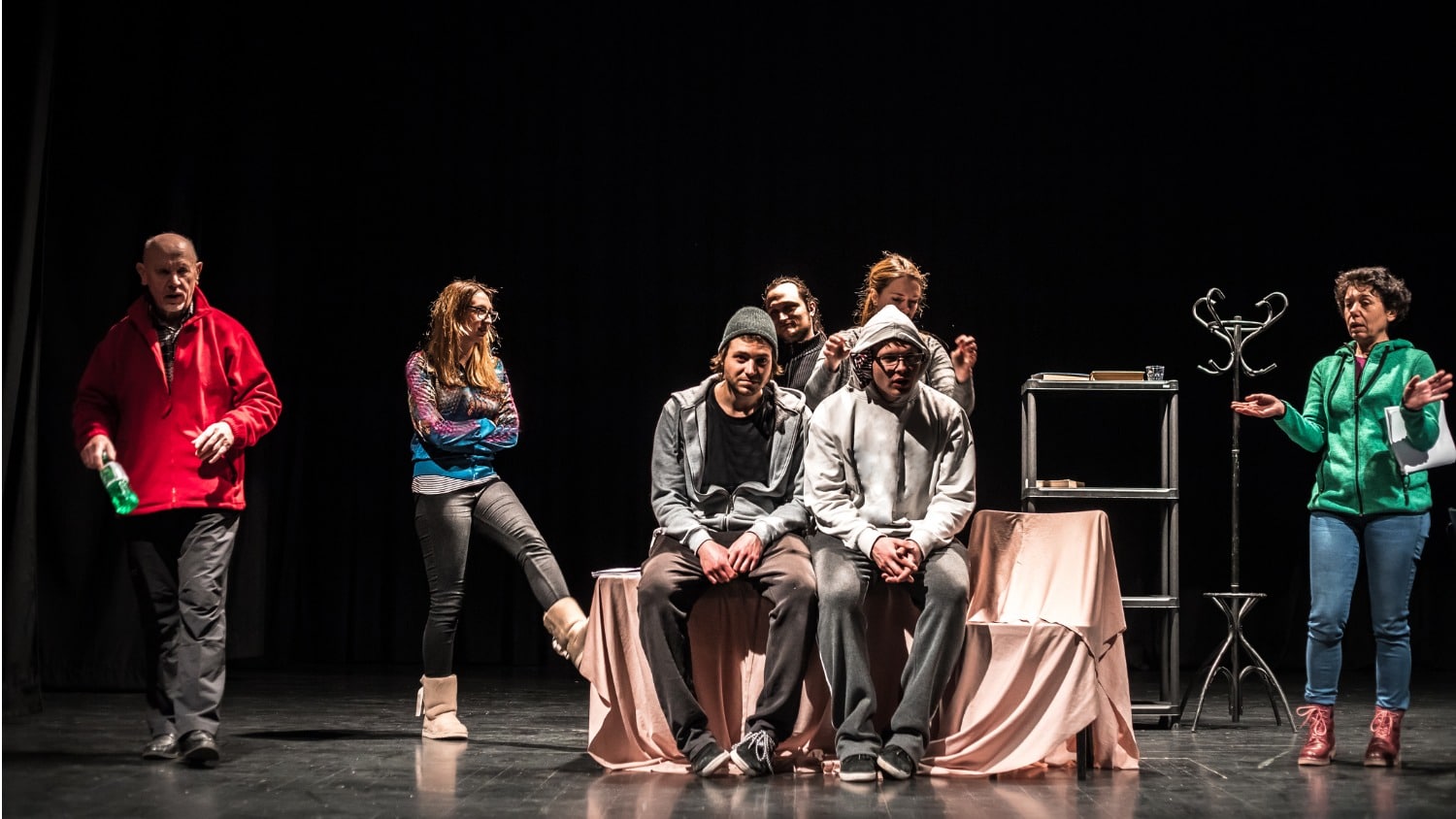
The Color of Chicago Opera and Theater
Last spring, I wrote about the explosion of black on the live stage. In 2022, all the new plays opening on Broadway were written by black playwrights and starred black performers. Locally, in Chicago, the explosion is sustained by the four-to-six-week schedule of new performances throughout the year.
All Black Productions
Most theater groups average six plays a season. Every company is woke. Turnover in management often produces a black artistic director or executive director. Donterrio Johnson, the new artistic director at PrideArts, sees this watershed moment as an opportunity “to show blackness on our stages that isn’t the ‘normal’ blackness seen in theater. Chicago theaters often stage shows that deal with black pain, and there is a place for that, but there are so many shows that are a celebration of blackness that I am interested in bringing into the fold.”
I had an important attitude adjustment attending Chicago theaters, producing black plays and operas, with black audiences, some likely new to live performance. My lesson is to keep a fresh and open mind. Try to see the play like someone attending for the first time – new to the story, new to the suspension of disbelief, new to seeing people like themselves on stage.
It’s not always easy because most of the stories are built on the black consciousness of marginalized lives and the successes or failures that creates. There can be a lot of sameness when you are speaking against institutionalized prejudice.
Did this affect the quality of Chicago theater? Let’s look.
The Most Spectacularly Lamentable Trail of Ms. Martha Washington
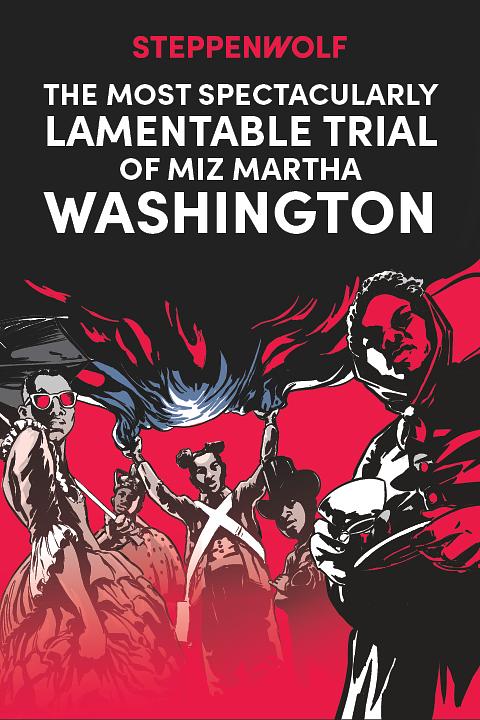
Produced by Steppenwolf Theatre, written by James Ijames, directed by Whitney White – an enjoyable farce.
James seizes on the disparate stories of George and Martha Washington. George, in his will, frees his slaves upon his death. Martha does not free hers and has no intention to do so upon her death. We join Martha at Mount Vernon, old, portly and autocratic. Her house slaves still serve her, with mutters under their breath.
Her field slaves continue their work, but they pine for the freedom given to their workmates. Martha manages her increasingly unruly domain from bed. There is minstrelsy singing and dancing, hip-hop, even a Hollywood-style quiz show in which Martha and her type lose the farm. It’s a fun romp with the inmates taking over the asylum. Recommended.
Choir Boy

Produced by Steppenwolf Theatre, written by Tarell Alvin McRraney, directed by Kent Gash – a black coming of age/queer story.
For the music alone, this is a beautiful play. The setting is a contemporary private black school, the Charles R. Drew Prep School for Boys. The faculty pride themselves on creating Drew men. But can a queer man be a Drew man? The plot is structured around the members of Drew’s award-winning choir.
This scenario produces the musical drive. The plot itself is a bit hackneyed and again I need to remind myself that this may be the first black play, the first queer play for some audience members. I loved the music. The book not so much, but it has a sweet resolution.
Clyde’s

Produced by Goodman Theater, written by two-time Pulitzer Prize winner Lynn Nottage, directed by Kate Whoriskey – tight theater in a truck stop.
Nottage writes strong women characters. This time it’s in a liminal space. Clyde is a big, bold black woman who takes guff from nobody, especially her employees – mostly recent prison parolees who are desperate for work. They put up with Clyde’s bullying. They bond with one another. They share their limited lives. They survive. Some move up and out. A tightly wrought one-act play. Recommended.
Toni Stone
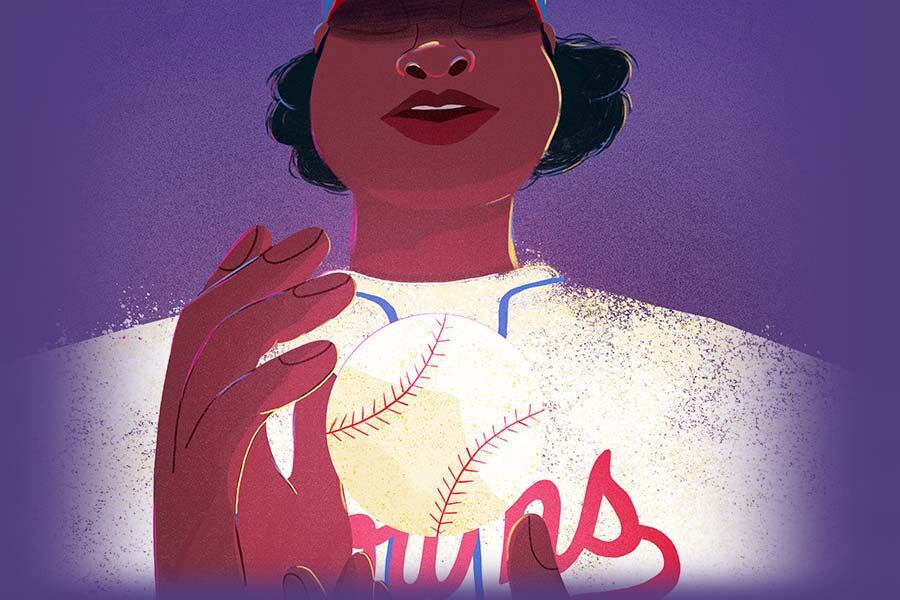
Produced by Goodman Theatre, written by Lydia R Diamond, directed by Ron OJ Parson – black girl makes the big league.
If you watched the Netflix production, A League of Their Own, you saw the fictional story of a black female baseball player who didn’t think she’d make the women’s professional leagues, much less the Negro men’s professional leagues that flourished before baseball integrated.
Toni Stone is a real black female athlete who did make it to the black men’s professional league. As history, it’s an interesting story. As a two-act play, it felt long and lacked a gripping dramatic arc.
The staging works. One set serves as a ball field, a bus, a locker room, a boudoir, and a men’s bathroom. There are nine black actors (a baseball team) and one white owner. Toni played for the Indianapolis Clowns, a team often compared with the Harlem Globetrotters for their combination of athletic prowess and comic entertainment. Female Toni Stone was a good fit for their audiences.
There just is not enough dramatic arc in this story. The love interest is bland at best. The Clowns did some clowning around, but not enough. The trials of traveling while Negro were subtly developed. The amazing star, Tracey N. Bonner, sustained the pace throughout. There is little dialogue – mostly Toni’s monologue of remembrances. Recommended if you need a history lesson about the Negro Baseball League.
The Ripple, the Wave That Carried Me Home, by Christina Anderson
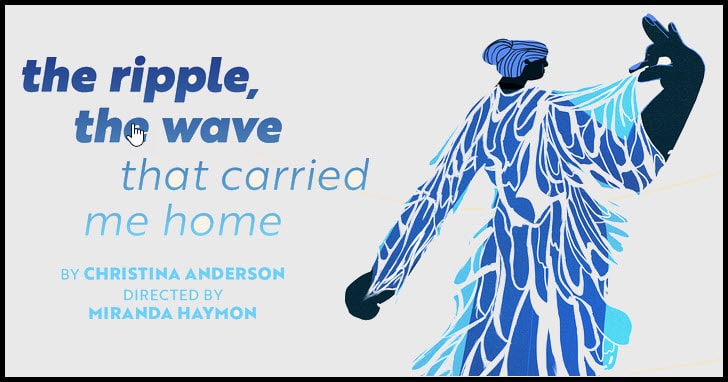
Directed by Jackson Gay, produced by Goodman Theatre – segregation at the swimming pool.
Blacks and whites peacefully coexisted near Kansas City, Kansas in the mid-1960s. They kept to their own sides of town, the whites progressing, the blacks less so. But it wasn’t always like this. When the first town swimming pool was built, blacks and whites shared it.
When a new pool was built, the old pool was patronized by blacks and new pools became exclusively white. Then the old pool was closed for repair and never reopened. Swimming was not just segregated. There was no place for blacks to swim.
Anderson tells the story of her hard-working parents who became community leaders to integrate the pools. They worked tirelessly, quietly, and ultimately successfully. The play is enhanced by the fun auntie who plays a sustaining part of family. Recommended.
The Factotum, World Premier
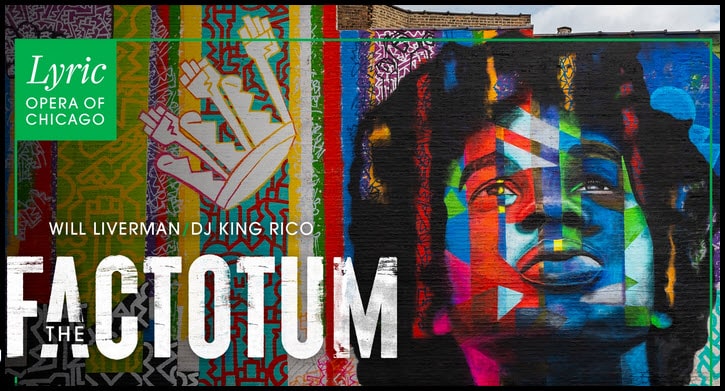
Produced by the Lyric Opera of Chicago. Concept, music and lyrics by Will Liverman and DJ King Rico. Book by Will Liverman, DJ King Rico and Rajendra Ramoon Maharaj – The Barber of Seville opens shop on the South Side of Chicago.
What do you get when you combine a classic opera baritone, Will Liverman, with a hip-hop artist, DJ King Rico? You don’t get a hip-hop opera. You get The Factotum, which is part opera, a little hip-hop, some blues, some musical theater. It’s a mash-up.
Based on The Barber of Seville, The Factotum is set in a barber shop, with its assortment of male denizens and a facing beauty parlor, with its female staff and clients. The set works, with plenty of space stage front for dance and small set changes. The three video screens over the stage were distracting. The orchestra was excellent. Taken as individual pieces, most of the music was excellent, but it did not hang together.
It’s hard not to compare The Factotum with all black Fire Shut Up in My Bones, produced last year by Chicago Lyric Opera. Based on a coming-of-age book by Charles Blow with music by Terence Blanchard and lyrics by Kasi Lemmons. The tone, the story arc, dancing, and singing in this opera were excellent—operatic but seamlessly including black music and dance. Would that Mr. Liverman and King Rico had been schooled there. The Factotum needs major workshopping.
Overall, Chicago benefits from 18 months of black productions. Black people, young and old, are coming to live theater. Repeatedly. And the selection of recommended plays far outweighs those of lesser merit.
Black and White, and Brown Theater in Chicago 2022-23
Most Chicago productions are now cast without regard for color. Let the best performer win! Usually this works; sometimes it confuses the audience.
The Notebook
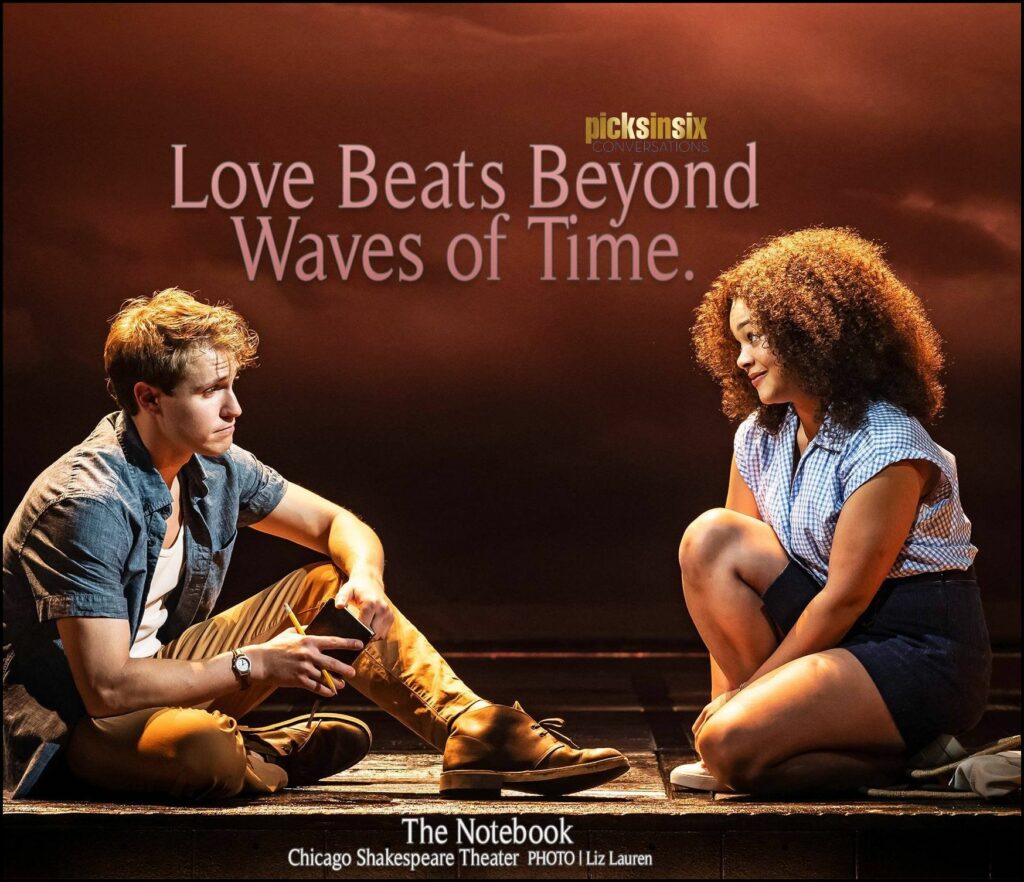
Produced by Chicago Shakespeare Theater, music, and lyrics by Ingrid Michaelson, book by Bekah Brunstetter, based on the novel by Nicholas Sparks, choreographed by Katie Spelman
directed by Michael Greif & Schele Williams – three stages of two lives.
Yes, it’s the romantic movie and book The Notebook, transformed into musical theater. In my opinion, neither the movie nor the book had much backbone, nor does the play.
Two significant components affected this production: the music was slow, repetitive, and bland; the casting was confusing. There are three acts, representing youth, middle age, and old age of a couple. In the first act, the young man is white and the young woman black. In the second act, the man is black, and the woman is white, and that continues into the third act. We know to suspend disbelief, but we are emotionally invested in the young people. For the first ten minutes of Act II, I didn’t know who I was watching. After a while, I no longer cared. Such a shame.
Supposedly, this production is moving to New York. I hope they pep up the music and respect their audience’s need for continuity.
Bald Sisters

Produced by Steppenwolf Theatre, written by Vichet Chum, and directed by Jesca Prudencio – a family drama about Cambodian immigrants.
There is much to like about this play: diametrically opposite sisters, a troubled marriage, an immigrant Queen Mother, and repressed memories of Pol Pot. Like most good dramas, there is conflict – swinging younger sister who was born in the States, emotionally devoid older sister controls everyone with passive aggression, and Ma, who lives every day as new, wonderful, and free.
Her death is the pivot around which the action spins. Sometimes, it’s overwrought – think 1980’s Steppenwolf scream theater – but it’s good to see everyone let go. Kudos to Vichet Chum for humanizing the inhuman. Recommended.
Paris

Produced by Steep Theatre; debut play written by Eboni Booth (a Vermont native) directed by Jonathan Berry – small town life.
Imagine growing up in Paris, a small town in Northern Vermont. Then imagine growing up black in that small town. There are probably more French speakers than blacks. It’s not that lead character Emmie was bullied or reviled – she was never seen. Whites don’t recall her, even though they went to the same schools.
Now, Emmie has returned to Paris and is seeking a second job at the local big box store. At night, she tends a bar. Her manager is a strait-laced black who seems to have made it, against the odds. A big fish in a small pond. The play takes place in the break room of the store where we meet other employees, most still at the same level after years of minimum-wage work with no benefits.
Emmie does not seem offended by her employer and co-workers’ attitudes and stories; it’s life as normal. Nor does she revile the manager, whose shenanigans create the dramatic arc and satisfying resolution. Recommended.
Life After
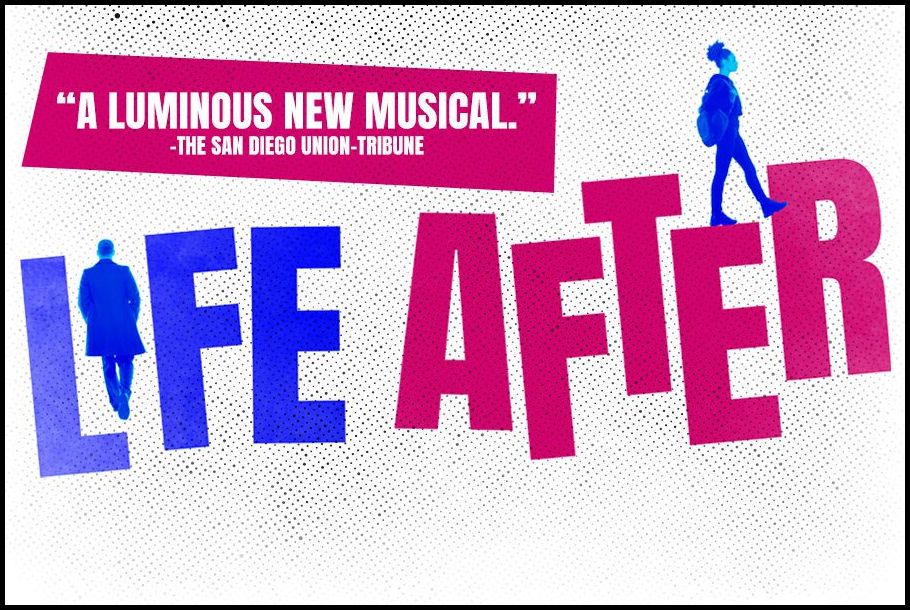
Produced by Goodman Theatre, music, lyrics, and book by Britta Johnson – first of what will be a long career in musical theater.
Johnson is the daughter of musicians who played season after season at the Stratford Festival in Stratford, ON, Canada. Her absorption of Sondheim, Kander and Ebbs, and Hammerstein is revealed in her beautiful musical about death and coming of age.
The director, Annie Tippe, cast the family as black mother, white father, two black daughters, but it could easily have been any family, almost anywhere. What the director needs are singers/actors who can handle musical theater. If this appears in your area, I recommend it.
Light Falls by Simon Stephens
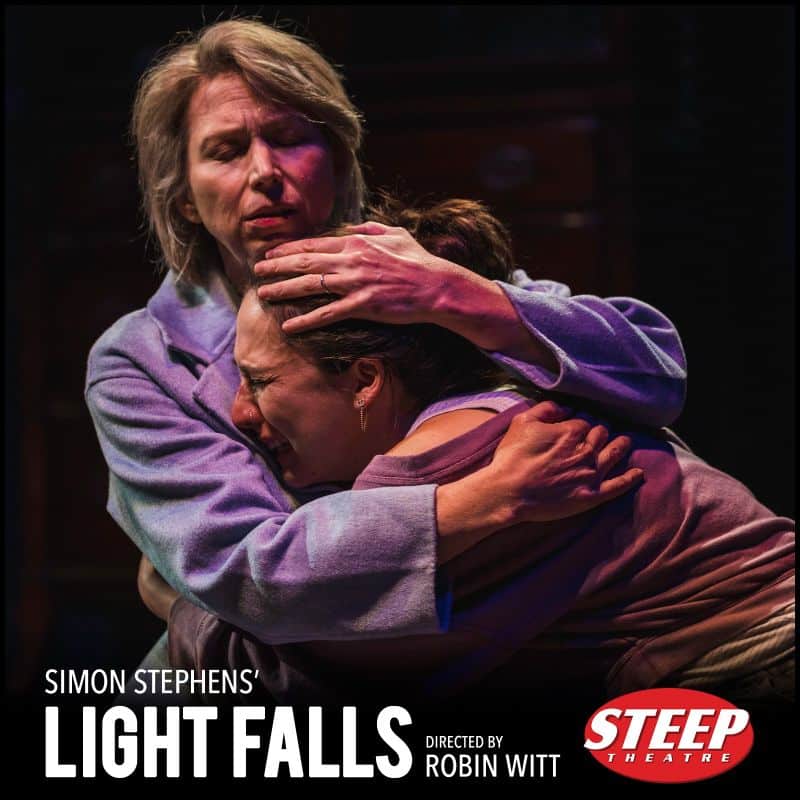
Produced by Steep Theatre, directed by Robin Witt – death is the protagonist.
Stephens, a stellar talent in British and U.S. theater, is associated with Steep Theatre Company. His most famous theatrical work in the U.S. is A Curious Case of the Dog in the Night. So, in Chicago we are often treated to Simon’s new plays, brought to life by the remarkable Steep Company. This is a U.S. premiere.
There are eleven roles in Light Falls – that’s big for a small company. There aren’t sets involved, only a stage that steps up several levels to a large flat platform. Characters walk on and off, creating little huddles of interaction on the steps. The platform is reserved for the funeral (oh yes, the play begins with the death of Christine – mother of three, wife of one). It works.
When Christine dies while in a supermarket, we see into the lives of her family at that moment. Each mini story plays out on empty steps, symbolic of their empty lives. Not bad people, just people with problems that we watch unfold and ripple together. Sounds like a downer, but it coalesces into a realistic, optimistic end. Recommended.
Where We Belong, a Monologue
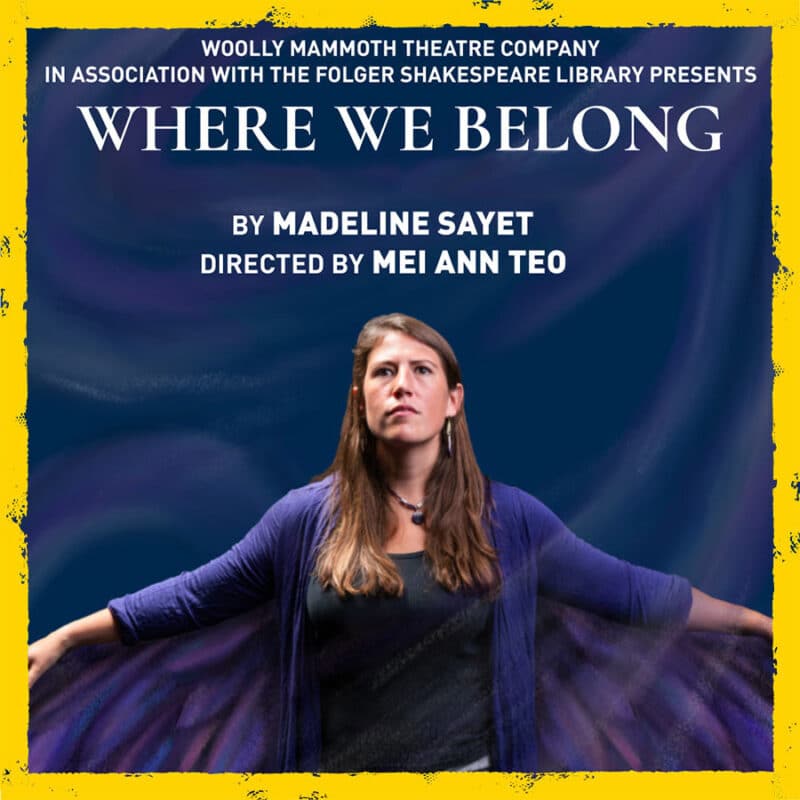
Produced by Woolly Mammoth Theatre, written, directed, and performed by Madeline Sayet – a search for family history.
Native Americans are among us. Sayet is Mohegan and named for her tribe’s last native speaker. As a Shakespeare scholar in London, Sayet absorbs the callous disregard of her history among a few expropriated artifacts in the British Museum. She thinks, “These people (the British) know nothing.”
I felt like responding to her on stage, “The British hardly acknowledged the existence of their colonies, much less Mohegans. Why should they treat your history as exceptional?” Memoires are wonderful things. Unlike biographies and autobiographies, memoires use memory, at best, a faulty device. Sayet is talented, her tale is interesting; it shines light into overlooked corners of U.S. history.
Let’s Have a Conversation:
Are you a theater goer? Do you have a favorite theater? How do you choose which play to see? What has captured your interest from the offerings on this list?
Tags Entertainment






